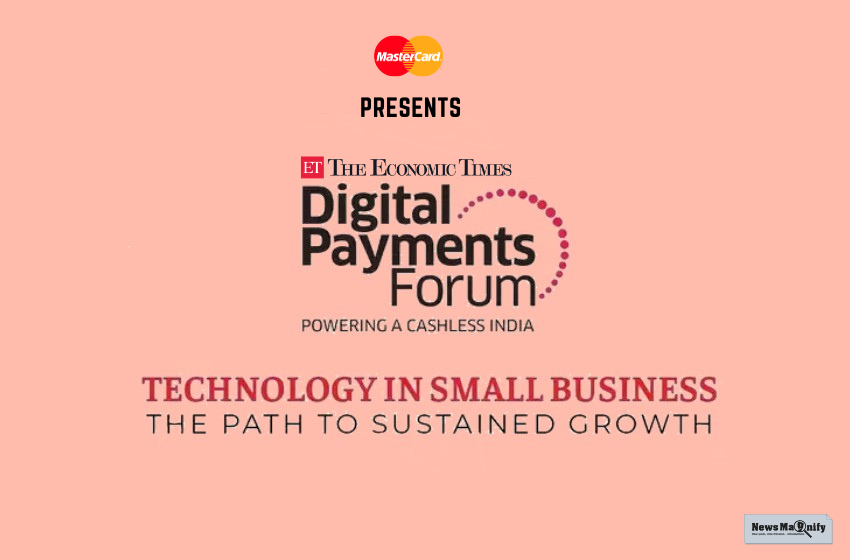
Fintech Solutions Have Discussed On The Small Business Credit Woes
- Business
 Yaseer Rashid
Yaseer Rashid- May 5, 2021
- 0
- 5 minutes read
Technological development has helped the business to grow over the period of time. But the scenario is not uniform for all types of businesses. Small businesses do not get benefited from the fintech solutions as there are not enough funds to avail of those. Above that, in this pandemic, small businesses are struggling for their survival.
To mark credit distress of the Micro Small and Medium Enterprises (MSMEs) and look at the role of Fintech as an emerging solution, The Economic Times digital forum for payment hosted an exclusive session that had all the senior managers from every space including Fintech, finance, banking, etc.
This discussion was primarily based on how the government and technological advancements help small businesses shape a growing path for themselves. The panel consisted of Rajeev Kumar, Senior VP- Market Development, South Asia, Mastercard. It also had Anil Bhardwaj, Secretary General, FISME Labs, and Kalpana Balasubramanian, CEO & Chief Thinker, Grant Thornton dGTL.
The topic of the discussion was termed “The fintech Solutions To Small Business Credit Woes”. The aim was to enable small businesses to be benefited from digitalization.
Key Areas Of Fintech Solution Discussion Included
- Ways in which fintech companies can allow small businesses to access cheaper credit.
- Receivables are the biggest concern of MSMEs currently in India. And there are online platforms for helping them with this. For example TReDS. How can MSMEs be benefited from such Fintech solutions?
- The three massive issues faced by SMBs in India are access to funds, regulations, and GST. Can adopting technology solve these issues?
- Challenges faced by fintech companies in lending to SMEs.
- Ways in which fintech companies increase their reach to small businesses.
As Discussed In "The Fintech Solutions To Small Business Credit Woes"
“The credit gap of MSMEs is huge for four reasons,” said Anil; Bharadwaj. “Such units have few assets to use as collateral, they have few stable sources of revenue, they have liquidity problems, and for lenders, there is information asymmetry.”
It is said to correct the last that fintech companies can play a massive role by just collating the transactions that are undertaken by MSMEs.
“Financial statements of an MSME do not give the information about why it needs credit, especially working capital,” Nitish Asthana, President, and CEO of Pine Labs said. “Fintech has data on how a company works, and this data can complement that which these enterprises submit to banks.”
Two factors that have severely affected the small businesses are the demonetization of 2016 and the still prevailing Covid-19 pandemic.
“In 2016-17, we had less than three million acceptance locations in India acquired over three decades most of which were in metros,” Rajeev Kumar says. “Today, we have 8.5 million such locations, most of the additions coming from Tier 2 to Tier 8 towns. The growth has been enabled by fintech companies, who work as payment facilitators, partnering with banks and acquiring merchants for them.” he continued.
If small and medium businesses have their transaction records there can be many fintech solutions that would enable them eligible for credit. Most important among them is invoice discounting where the pending invoices will be used as collateral.
“Invoice discounting is a big boon for small businesses, enabling them to get at least working capital loans,” says Kalpana Balashubhramanian.
The Reserve Bank Of India in 2014 launched the idea of a Trade Receivables Discounting System (TReDs), which provided MSMEs a formal procedure to facilitate the financing of their receivables through multiple financiers on a safe digital platform.
MSMEs are equally enthusiastic about this approach especially after the pandemic hit the small businesses hard.
“Before the lockdowns began, we had MSMEs from around 350 towns across the country participating,” Mohindru said. “Now it is 612 towns. Even small companies in Tier 3-4 towns are putting their invoices on their phones and getting discounts.” Along with that he also added that “A change of culture is required,” “Once invoices are displayed online, everything becomes visible and there is pressure on these companies to pay on time.”
The discussion was moderated by Alokesh Bhattacharyya, Senior Editor, and Suchetana Ray, Senior Assistant Editor of The Economic Times.

